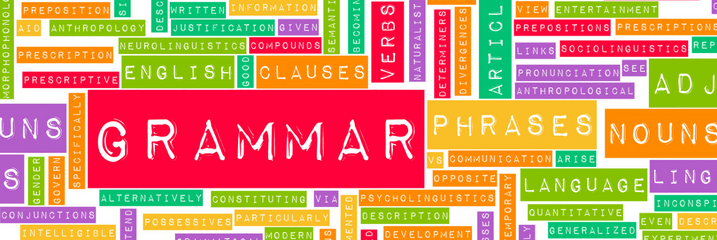The fact that you’ve chosen the law as your career path reveals a few things about you. Chances are you’re pretty smart. You’re also more likely to be a stickler for rules. The latter trait not only applies to life and work, but to grammar and spelling as well.
The English language—particularly in the legal industry—is a minefield of arcane phrases and obscure grammatical rules that can trip up even the most seasoned professionals. Sometimes, the rules themselves are confusing. Other times, the difference between the right word and the wrong word are so slight that they can occur when simply typing too fast.
In either case, mistakes can be embarrassing and leave clients, colleagues, or the court with the impression that you’re careless. Therefore, we thought it would be a good idea to point out some of these common grammar mistakes – and to set the record straight.
#1 Using the passive voice
Anyone who has studied the law knows that scores of legal opinions are filled with passive phrases. Indeed, the passive voice is used so often that it starts to feel like it is the correct way for legal writing to flow.
It is not.
When the subject of the sentence is acted on by the verb, you’re writing in the passive voice. For example, “the brief was drafted by me” is passive. “I drafted the brief” is the active form of that sentence – and the preferred way of writing.
#2 Improper references to an entity
When referring to a corporation or similar entity, remember that it is separate from the people who run it. Many times, you’ll see a legal document refer to an entity as if it has its own free will – e.g., “Acme Corp. had a pattern and practice of discriminating against women.”
Technically, that is impossible. Acme Corp. can’t actually do anything – but its employees can. A better sentence, therefore, would be: “The managers of Acme Corp. had a pattern and practice of discriminating against women.”
Also, when referencing the entity itself, remember that it is an “it” and not a “they.” Examples:
(Correct) “Acme Corp. is located in Illinois. It has been there for 15 years.”
(Incorrect). “Acme Corp. is located in Illinois. They have been there for 15 years.”
#3 Capitalization
When do you capitalize “court”? Always? Never?
Rule 8 of The Bluebook name three scenarios in which “court” would be capitalized.
- “When naming any court in full”
- “When referring to the United States Supreme Court”
- “In documents referring to the court that will receive your documents”
Correct:
“This Court has already ruled on Defendant’s Motion To Dismiss.”
“The court of appeals reversed the trial court.”
“The Court of Appeals for the Fifth Circuit affirmed.”
#4 Words that are often confused for one another
There are many different words and phrases that sound and look the same but have different practical meanings. Or they’re different forms of the same word, to be used in different settings. Check out our list of commonly misused words in the legal industry for some quick tricks for remembering when to use one or the other.
#5 Dangling modifiers
It is helpful to break down this rule in order to understand it. A modifier, as the name suggests, changes something about the sentence. “Dangling” refers to the fact that your modifier isn’t attached to anything. Confused yet?
Here’s a sentence with a dangling modifier: “Wanting to win at trial, the jury instructions were given a great deal of effort.” The problem, of course, is that we don’t know who wants to win at trial.
Here’s a better sentence that doesn’t leave the modifier dangling: “John wanted to win at trial, so he put a great deal of effort into drafting the jury instructions.”
Most legal professionals are pretty good with grammar and spelling. That said, mistakes happen all the time. When in doubt, it’s always best to look up the proper rule. And, whenever possible, have your grammar-geek colleagues proofread your work before it goes out the door.
Grammar is an evolving practice, a way of tracking how modern language is being used. Above all, grammar rules are meant to make writing clear, to reduce the likelihood of miscommunication.









